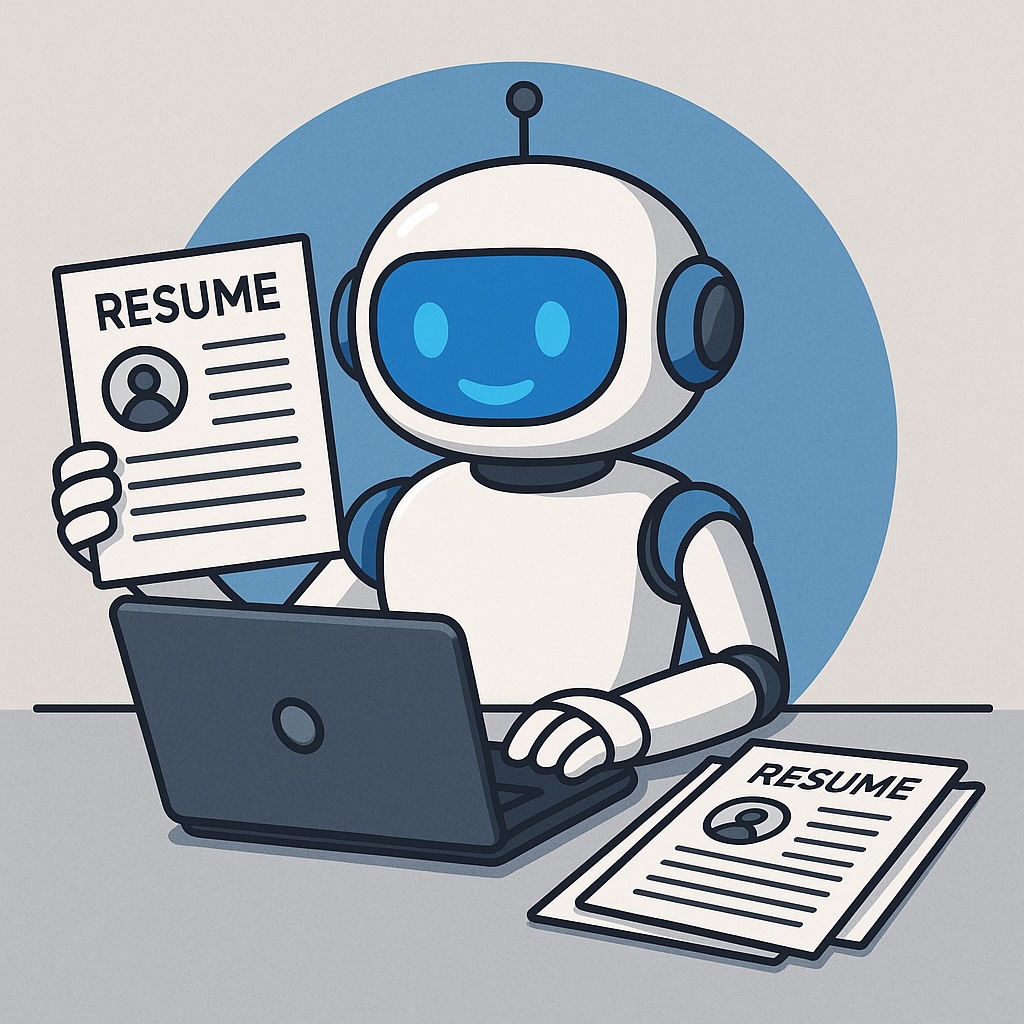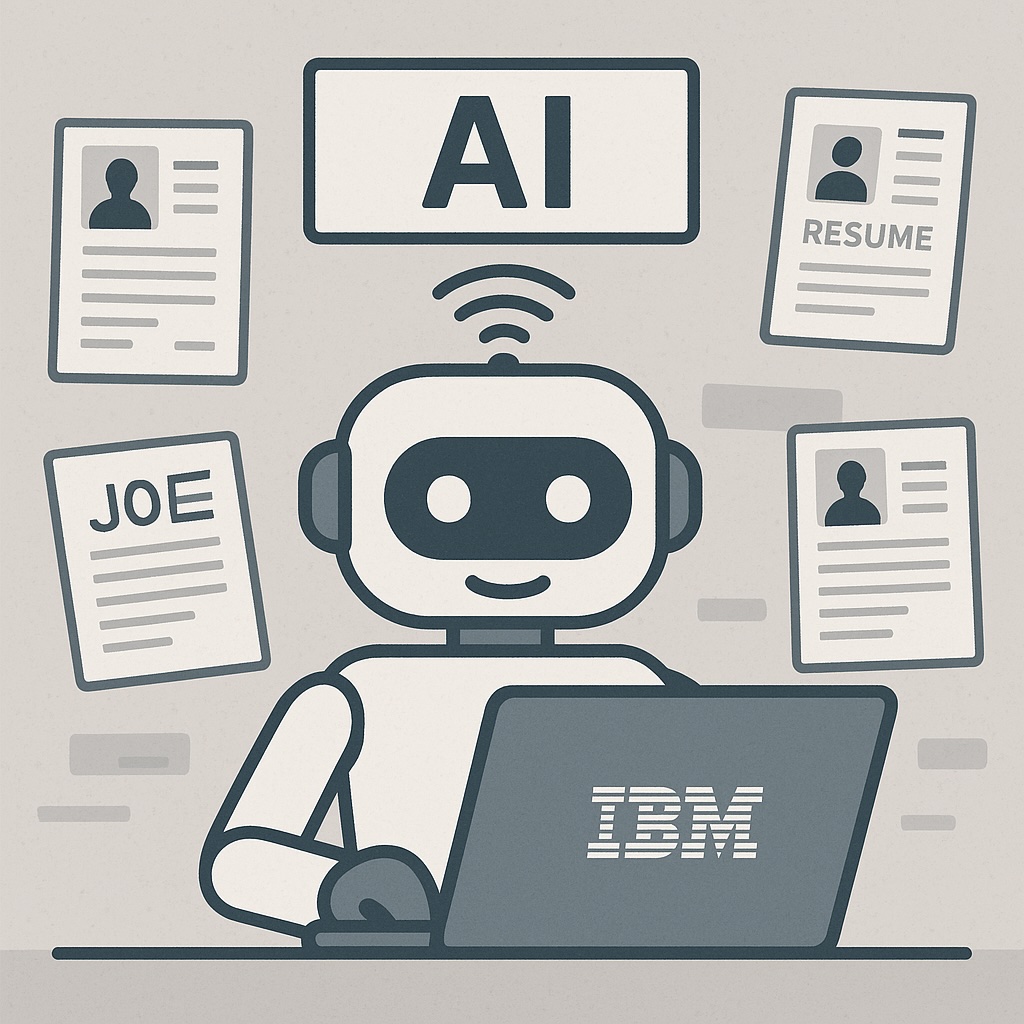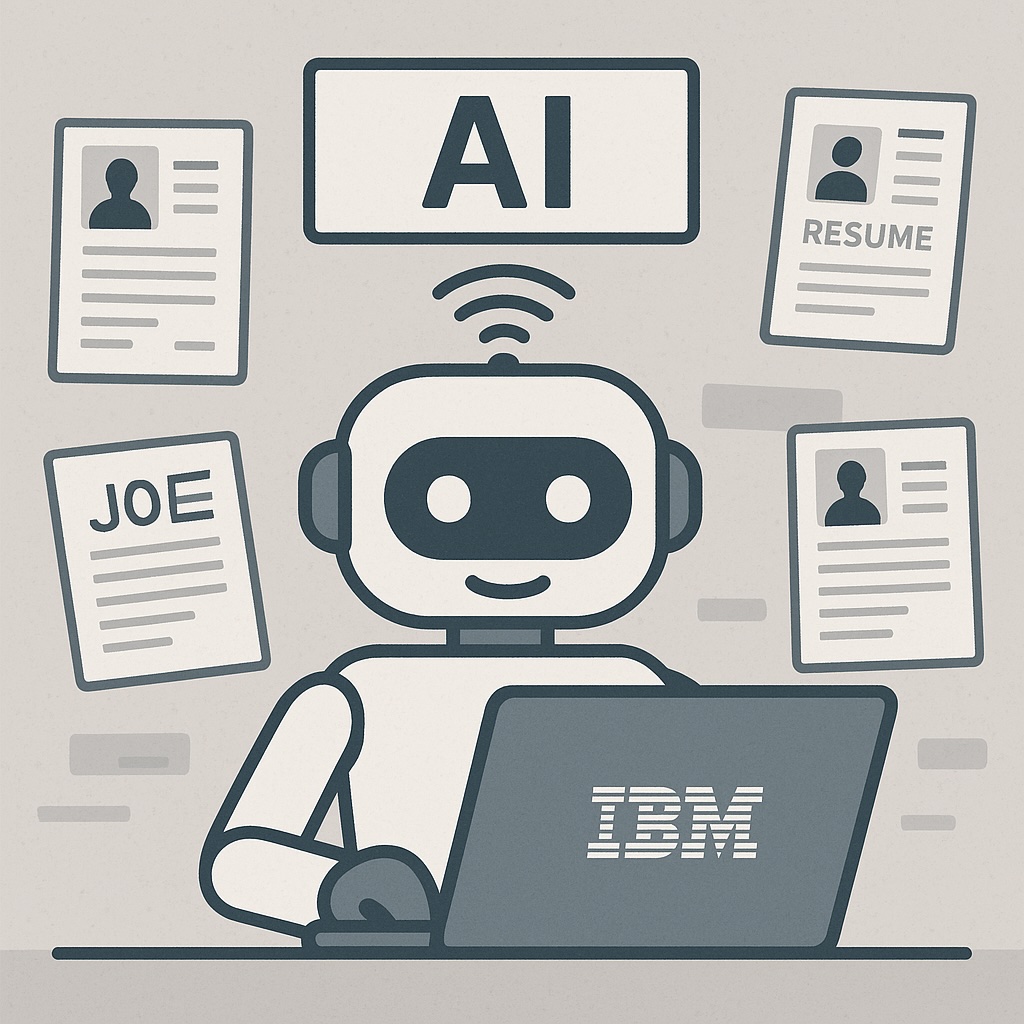How AI is Changing the Hiring Game
I worked as a manager in a large organization for over 20 years. The most painful part of my job was finding and retaining good staff. While I was happy when my staff got promoted and moved up, I was disappointed when my hires were a bad fit. Hiring the right people has always been one of the biggest challenges in business. Between long screening processes, unconscious bias, and high turnover, traditional recruitment methods often failed to deliver top talent quickly or fairly. Worse, when you work for a government organization, as I did, you may even be blocked from hiring because of civil service rules. I was often faced with hiring or promoting staff I didn’t feel would be a good fit, simply because they had scored better with our central HR department. To be fair, those civil service rules are in-place to protect the workers, but are incredibly challenging for managers and even existing staff.
But here’s the game-changer: artificial intelligence is making hiring smarter, faster, and more objective.
If you’re still relying solely on resumes and phone screens, you’re behind. These days, you need to implement an AI-based solution to help out your hiring process. Companies like IBM , Unilever , and Hilton have already seen dramatic improvements in hiring outcomes after implementing AI-driven solutions. This guide will show you exactly how AI can enhance your hiring process—and how to do it ethically, affordably, and effectively.
Want to learn more, watch this video I created on my AI Connection channel discussing the subject:
What Is AI-Powered Hiring?
Well, at this point, artificial intelligent robots won’t be the ones taking over the actual hiring and handshakes. However, AI can assist humans in the hiring process, freeing up time and resources for the company.

AI-powered hiring refers to companies using artificial intelligence tools and algorithms to automate or assist different stages of recruitment. By leveraging machine learning algorithms and data-driven analysis, AI-powered systems can streamline the hiring process, helping companies sift through resumes, identify top candidates, and even assess skills through automated screenings. With AI-driven tools, recruiters can enhance efficiency, make smarter hiring decisions, and improve candidate experience, ultimately leading to more diverse and qualified teams.
Some AI powered tools employers are using include:
- Resume screening
- Chatbot candidate engagement
- Skill assessments using gamification
- AI-analyzed video interviews
- Predictive analytics to forecast candidate success
At its core, AI doesn’t replace recruiters—it amplifies their capabilities by handling repetitive tasks and surfacing insights from large volumes of data.
Related Reading: Top AI Tools for Small Business Hiring
Top Benefits of Using Artificial Intelligence in Hiring
So, why would you want to use AI in your HR department? Well, there are several benefits. These include:
1. Faster Time-to-Hire
AI can reduce your average time-to-hire by 50% or more. For example, Unilever cut hiring time from 4 months to 4 weeks by automating initial screening and assessments.
2. Improved Candidate Matching
AI uses machine learning to match job descriptions to applicants based on more than just keywords—it can assess behavioral traits, soft skills, and predicted job performance.
3. Reduced Hiring Bias
When properly trained, AI ignores names, ages, and other demographic details. Tools like Pymetrics focus on cognitive and emotional traits, helping level the playing field.
4. Cost Efficiency
By automating manual tasks like resume sorting and interview scheduling, companies can save hundreds of HR hours annually.
5. Enhanced Candidate Experience
AI chatbots like Paradox Olivia engage candidates instantly, answer questions, and keep them updated through each stage.
Key AI Tools Transforming Recruitment

Though I’ve not personally used any of the following, I know many companies are successfully implementing Artificial Intelligence tools in their HR departments. Here are five powerful AI tools making waves in hiring:
- HireVue: HireVue is an AI-driven hiring platform that enhances recruitment by using video interviews and predictive analytics to assess candidates. It analyzes verbal and non-verbal cues, cognitive abilities, and job fit through structured assessments. By leveraging machine learning, HireVue helps companies identify top talent efficiently while reducing bias in decision-making. With automated screening and interview scheduling, it streamlines the hiring process, making recruitment faster and more data-driven.
HireVue’s AI-powered hiring platform is utilized by numerous prominent companies across various industries to streamline their recruitment processes. Here are some notable organizations that have adopted HireVue:
• IBM: Leverages HireVue to enhance its hiring efficiency and candidate assessment processes.
• Unilever: Implemented HireVue’s video interviewing and AI assessment tools to improve candidate experience and reduce time-to-hire. 
• Hilton Hotels: Utilizes HireVue to manage high-volume hiring needs, particularly in customer-facing roles.
• Goldman Sachs: Employs HireVue for initial candidate screenings, aiming to identify top talent efficiently.
• Deloitte: Incorporates HireVue’s platform to assess candidates’ skills and fit within the organization. 
• Vodafone: Uses HireVue to streamline its recruitment process and enhance candidate evaluations. 
• Under Armour: Adopts HireVue’s solutions to improve hiring outcomes and candidate engagement.
• Delta Air Lines: Implements HireVue to efficiently manage its recruitment pipeline and assess applicant suitability. 
- Pymetrics: Gamified assessments measuring 90+ behavioral traits to match people with roles. Pymetrics is an AI-powered hiring tool that uses neuroscience-based games to assess candidates’ cognitive, social, and emotional traits. By analyzing attributes like risk-taking, attention, and problem-solving, Pymetrics matches individuals with roles that align with their strengths, helping companies make more objective hiring decisions. Its bias-free approach ensures fair assessments, promoting diversity in the hiring process while offering candidates deeper insight into their potential career fit.
- hireEZ (formerly Hiretual): AI sourcing engine that finds passive candidates across 45+ platforms. HireEZ is an AI-driven talent-sourcing platform designed to help recruiters find and engage with top candidates efficiently. It uses machine learning and predictive analytics to identify passive talent across multiple professional networks, streamlining outreach with automated messaging and deep search capabilities. By integrating with applicant tracking systems (ATS), HireEZ enhances recruitment strategies, enabling companies to build stronger and more diverse teams with data-driven insights.
- Sapia.ai (formerly PredictiveHire): Text-based interview tool using NLP to assess personality and fit. Sapia.ai is an AI-powered hiring platform that specializes in chat-based interviews to assess candidates fairly and efficiently. Using natural language processing (NLP) and machine learning, it evaluates responses to determine personality traits, skills, and job fit. Sapia.ai eliminates traditional resumes, focusing on structured conversations to provide bias-free hiring insights. By automating screening and ranking candidates based on competencies, it helps companies make data-driven hiring decisions while improving the candidate experience.
- SeekOut: Talent intelligence platform that helps source and retain diverse, high-skill candidates. SeekOut is an AI-driven talent optimization platform that helps organizations recruit, reskill, and redeploy talent effectively. Founded in 2017, the company leverages advanced AI and machine learning to assist HR teams in building diverse talent pipelines and making strategic hiring decisions. SeekOut enables businesses to search across multiple talent pools, including public profiles, internal databases, and alumni networks, ensuring they find the right candidates for their needs.
Here’s a comparison table highlighting the features of SeekOut, Sapia.ai, HireEZ, Pymetrics, and HireVue based on available information:

How AI Enhances Each Stage of the Hiring Funnel
Of course, there are multiple processes involved in the HR system. Artificial Intelligence can help out with each process in the following ways:
1. Sourcing Candidates
While working in government, we were always hard-pressed to find talent through our internal job system. We would reach out to various agencies and external tools. Even then, not every candidate comes up. Platforms like hireEZ and SeekOut help you identify passive talent that doesn’t show up on traditional job boards. Each tool leverages data aggregation from various sources, including LinkedIn, GitHub, and other professional networks, to build comprehensive candidate profiles.
HireEZ, for example, integrates with ATS systems and uses AI to refine searches, making it easier for recruiters to find candidates who match specific criteria. SeekOut, on the other hand, offers custom filters and Boolean search capabilities, allowing recruiters to get creative with their searches and uncover hidden talent.
Each platform has its strengths, with SeekOut and HireEZ excelling in AI-powered talent search, while Sapia.ai and Pymetrics focus on psychometric assessments. HireVue stands out for its video interviewing capabilities
2. Resume Screening
While there will still need to be a human making a final recommendation, AI tools can screen thousands of resumes quickly, ranking candidates based on relevance and match quality. IBM’s AI reduced hiring costs by 30% using smart resume parsing. The system, askHR, works by using advanced algorithms to automatically extract and analyze critical information from resumes, including work experience, education, and skills. This automation is particularly valuable given that recruiters typically spend only 7.4 seconds on each resume when reviewing manually. I know that reviewing resumes is tedious and painstaking. Having an AI do the first cut would greatly dimmish the need to evaluate resumes which will not be a match.
One interesting aspect is how this technology addresses unconscious bias in hiring. Being human, the first thing I do when I see a resume is look at the name. I then make a snap judgement about the person, which I may or may not change based on the rest of the resume. The AI-driven system standardizes candidate profiles and focuses on job-relevant skills rather than personal preferences that might influence human reviewers like me. This not only makes the process more fair but also helps in building a more diverse workplace.
3. Assessments and Interviews
With tools like Pymetrics and HireVue, companies test cognitive traits or analyze facial and vocal cues during video responses. Pymetrics employs neuroscience-based games to evaluate cognitive, social, and emotional traits. Candidates play a series of mini-games designed to measure attributes like attention, risk-taking, and problem-solving. These assessments help match individuals to roles based on their inherent strengths, reducing bias in hiring decisions.
HireVue, on the other hand, utilizes AI-driven video interviews and pre-employment assessments. Candidates answer structured questions on video, and AI analyzes their responses, including verbal and non-verbal cues, to assess cognitive abilities, communication skills, and job fit. HireVue also incorporates predictive analytics to determine how well a candidate aligns with a role.
4. Engagement and Communication
There is also a use for artificial intelligence in the process of candidate interaction. AI chatbots like AllyO and Olivia handle FAQs, schedule interviews, and send reminders—creating a smoother candidate experience. These chatbots use natural language processing (NLP) to answer common questions about job roles, company policies, and application processes in real time. This reduces recruiter workload and ensures candidates get instant responses.
Scheduling Interviews: They integrate with calendars and applicant tracking systems (ATS) to automatically schedule interviews based on availability. Candidates can select convenient time slots without back-and-forth emails.
Sending Reminders: These tools send automated notifications via email or text to remind candidates about upcoming interviews, deadlines, or next steps in the hiring process.
By reducing manual tasks, tools like AllyO and Olivia help employers focus on meaningful interactions while keeping candidates informed and engaged throughout the hiring journey. This serves two purposes. First, the candidate is continually informed about their status. Second, the employer isn’t spending precious time answering questions from candiates.
5. Decision Support and Predictive Hiring
AI evaluates how closely a candidate’s traits match your top performers. This reduces guesswork and helps predict future success. These AI-powered hiring tools revolutionize decision support by evaluating a candidate’s traits and predicting future success with data-driven insights.
These systems analyze resumes, assessments, and interviews using machine learning to identify patterns linked to high performers. By assessing cognitive abilities, personality traits, and past experiences, AI can recommend candidates who align with a company’s success criteria. Predictive hiring algorithms factor in historical hiring data and industry trends to forecast job fit, reducing turnover and optimizing workforce planning. While AI enhances objectivity and efficiency, businesses must ensure transparency and fairness in its use, balancing automation with human judgment for well-rounded hiring decisions.
Ethical and Legal Considerations
As with any new technology, there are things which must be handled before the tools are unleased on the world. Based on recent developments, companies are implementing several key strategies to navigate the ethical and legal landscape of AI in hiring:
A significant majority (65%) of businesses are now using AI in HR functions, with 61% using it daily. However, they’re taking specific precautions to ensure responsible implementation:
First, companies are actively addressing bias concerns. They’re regularly auditing their AI systems’ data sets and decisions to prevent discriminatory outcomes. This is particularly important since AI can potentially introduce bias based on historical hiring data.
Transparency has become a critical focus. Organizations are now:
– Notifying candidates when AI is being used in the hiring process
– Reviewing and auditing AI-generated content
– Ensuring privacy protection for sensitive information
– Making sure AI decisions align with company culture and brand values
There’s also a growing recognition that AI shouldn’t completely replace human judgment. As one senior HR director noted, “AI cannot replace human evaluation to ensure candidates meet certain qualifications requiring empathy and leadership competencies”.
On the legal front, companies are implementing several safeguards:
– Regular algorithmic audits to check for discriminatory patterns
– Clear documentation of AI decision-making processes
– Compliance checks with existing employment laws
– Protection measures for candidate privacy and data security
A particularly interesting development is that many organizations are adopting a hybrid approach, using AI for initial screening while keeping human recruiters involved in final decision-making. This helps balance efficiency with ethical considerations and ensures compliance with employment regulations.
One key point that HR professionals emphasize is that while AI can streamline processes, it should enhance rather than replace human judgment, especially when evaluating soft skills and cultural fit.
Some tools, like Pymetrics, publish their ethical framework and conduct third-party audits.

Also, New York City implemented a local law which requires bias audits for automated hiring tools.
- EU GDPR: Requires informed consent and explanation of algorithmic decisions.
- EEOC (U.S.): Warns against tools that cause disparate impact.
The best thing to do is to disclose AI use early in the process. Provide candidates with an explanations and allow human review when requested.
Internal Link: AI Hiring Compliance Checklist for HR Teams
How to Get Started with AI-Powered Hiring
🧩 Step 1: Audit Your Hiring Funnel
Identify bottlenecks like resume overload or slow scheduling.
🛠 Step 2: Research the Right Tool
Use trials or demos from platforms like HireVue or Pymetrics to test fit.
🧪 Step 3: Pilot the Program
Run a 30-60 day test with a single department or location.
📊 Step 4: Measure Impact
Track KPIs like time-to-hire, candidate satisfaction, and cost per hire.
🤝 Step 5: Train Your Team
HR professionals should understand how to interpret AI results and maintain ethical standards.
Internal Link: How to Build an AI Recruitment Strategy
Conclusion: The Future of Hiring is Human + AI
Artificial intelligence isn’t replacing recruiters—it’s giving them superpowers. From screening resumes in seconds to predicting long-term success, AI helps companies hire smarter, faster, and fairer.
If you want to compete for top talent in 2025 and beyond, now’s the time to integrate AI into your hiring strategy.
✅ Ready to take the next step? Check out my AI Hiring Toolkit or explore more AI-powered HR solutions on our site.
Like this article? Share it, bookmark it, and leave a comment below with your questions—we love hearing from you!